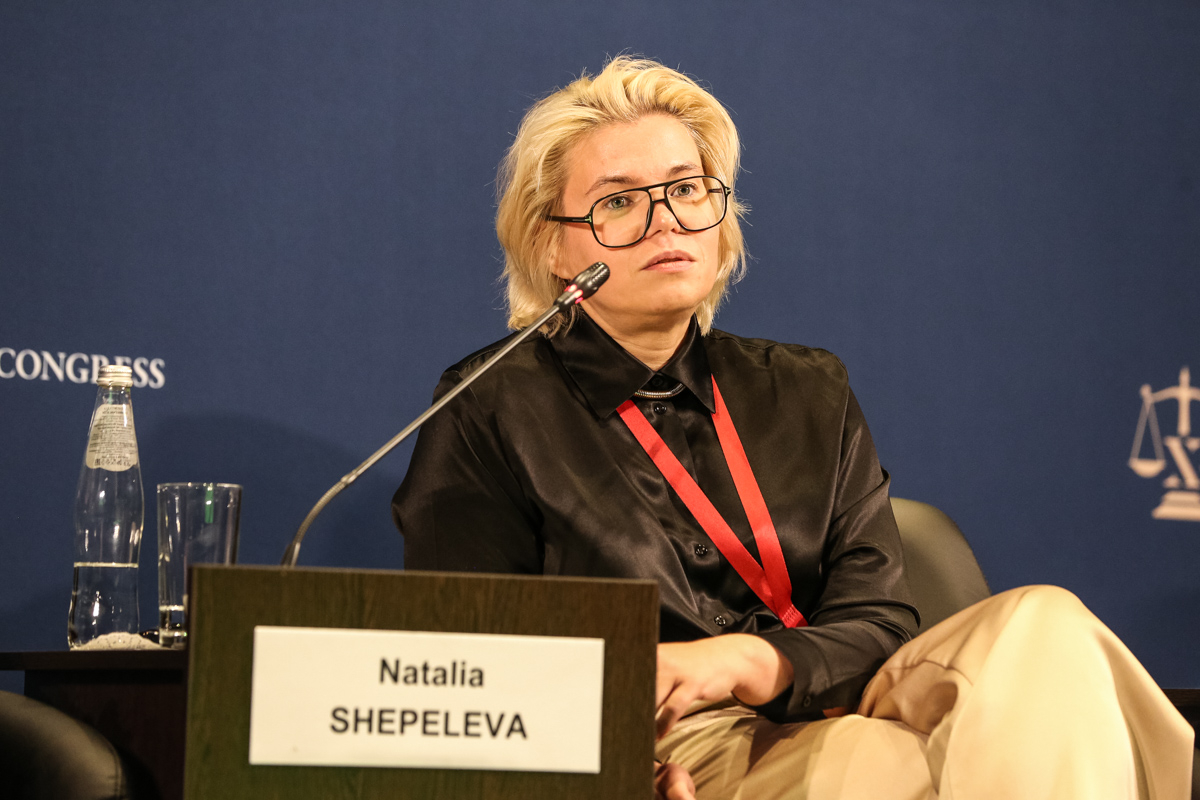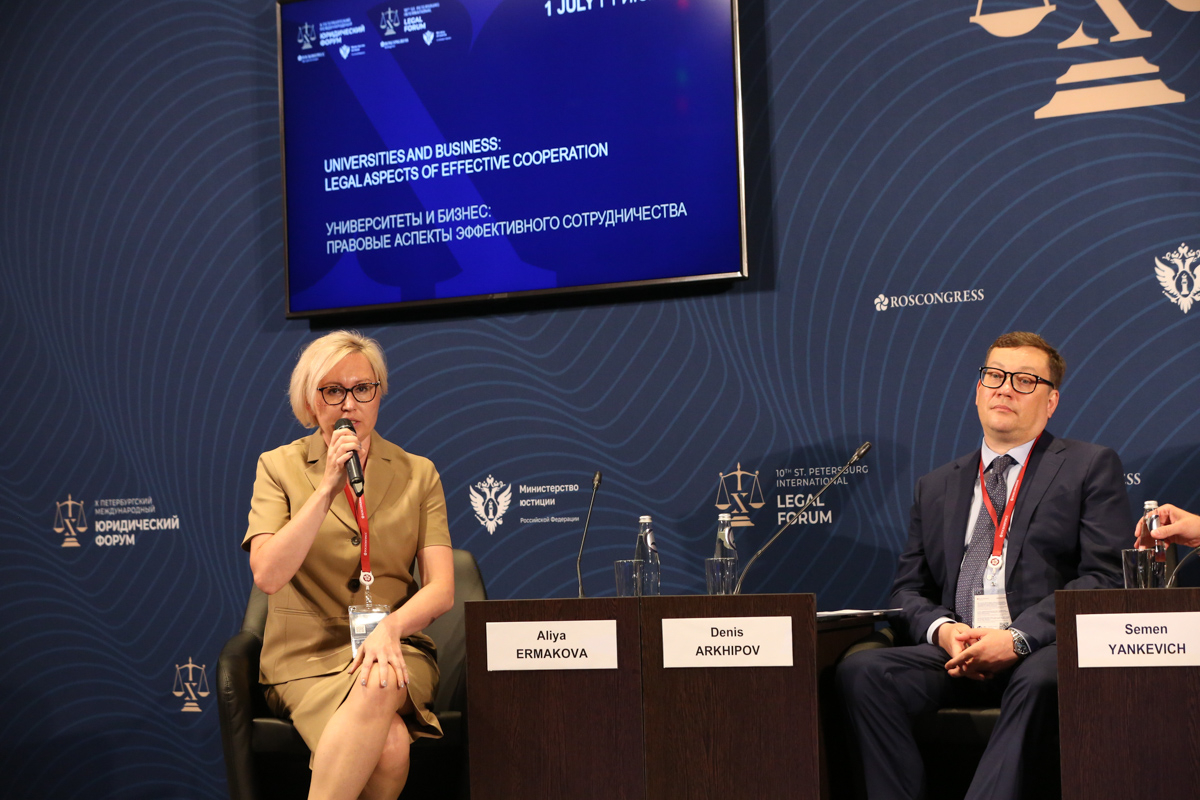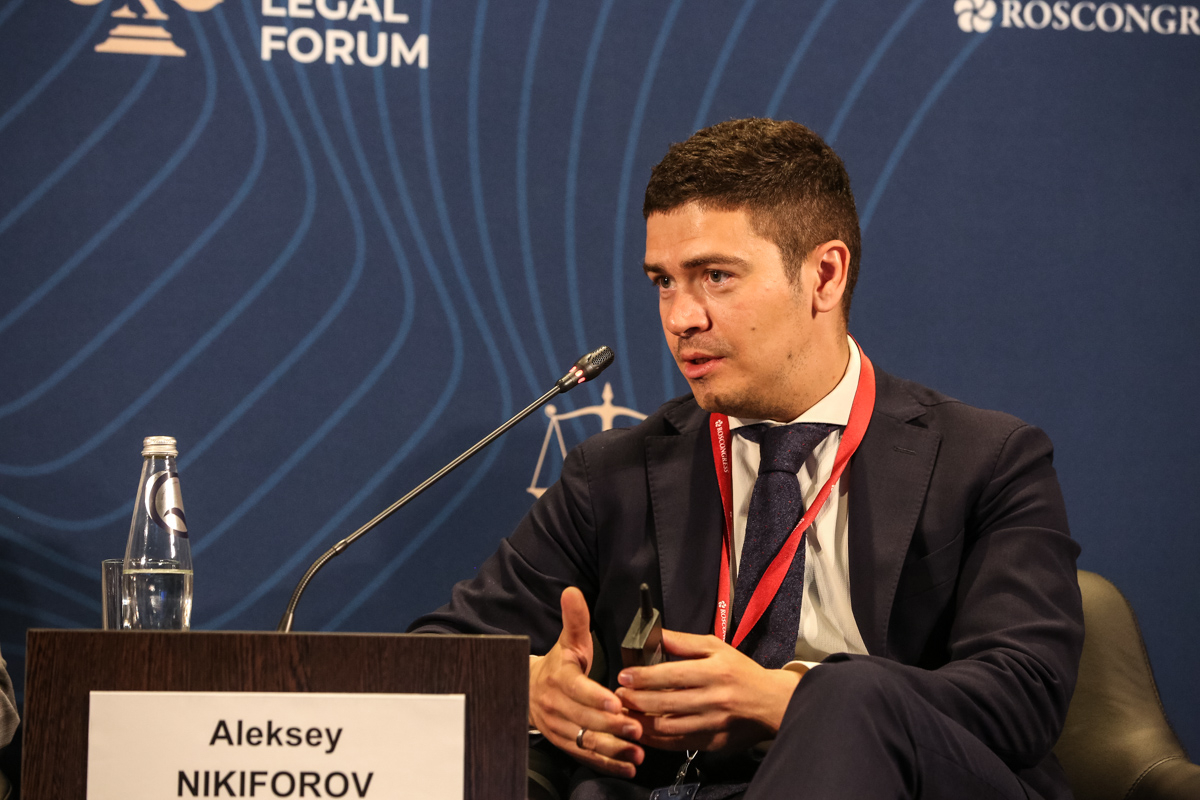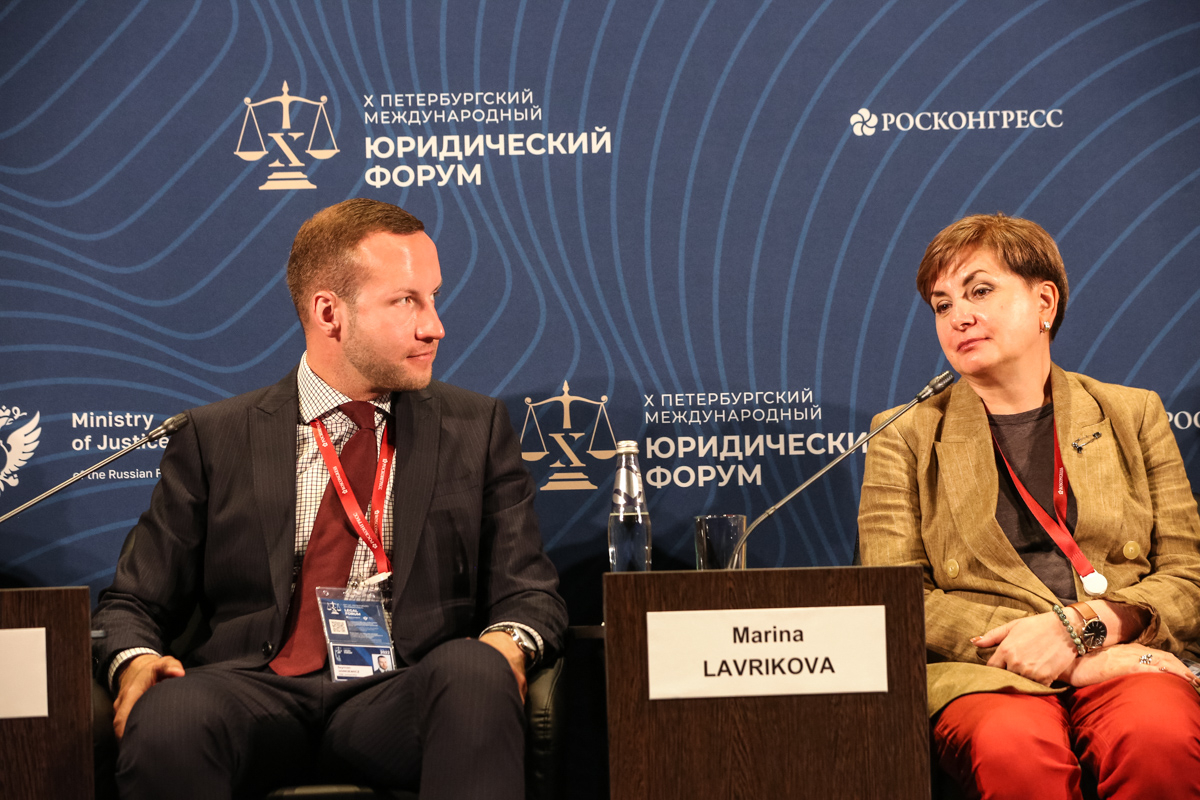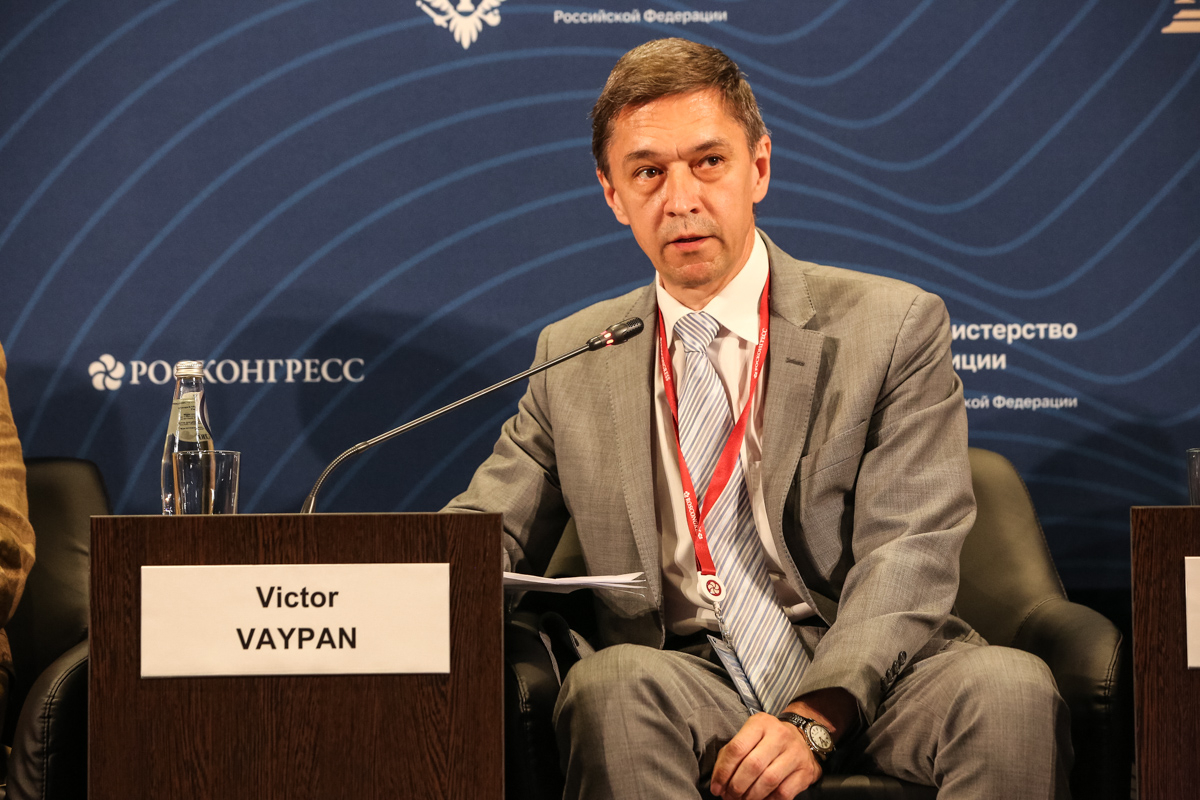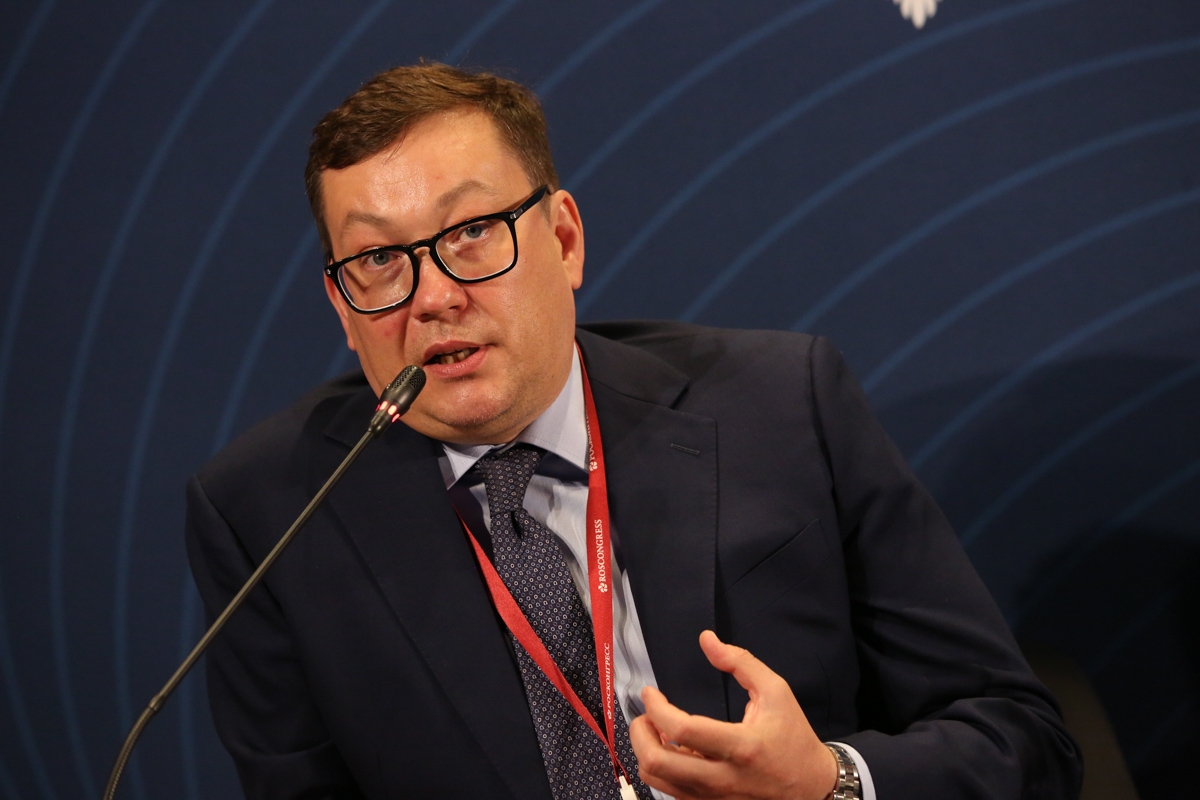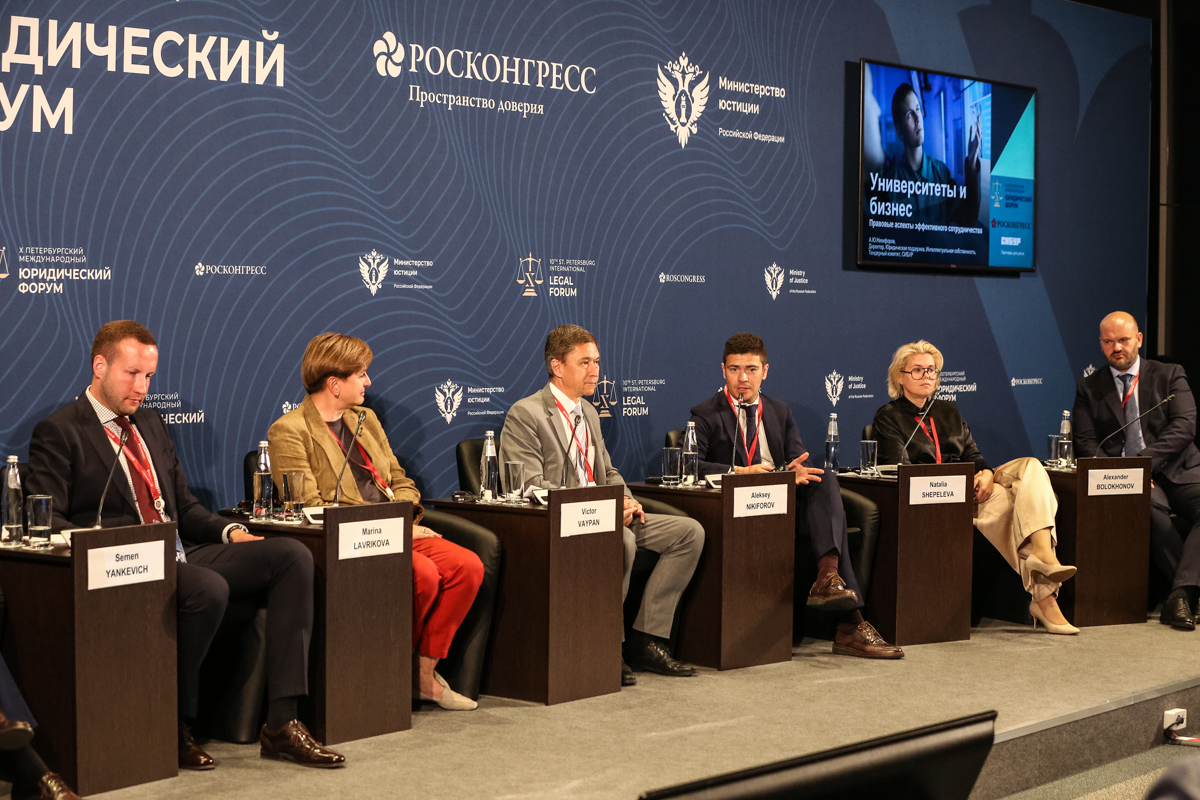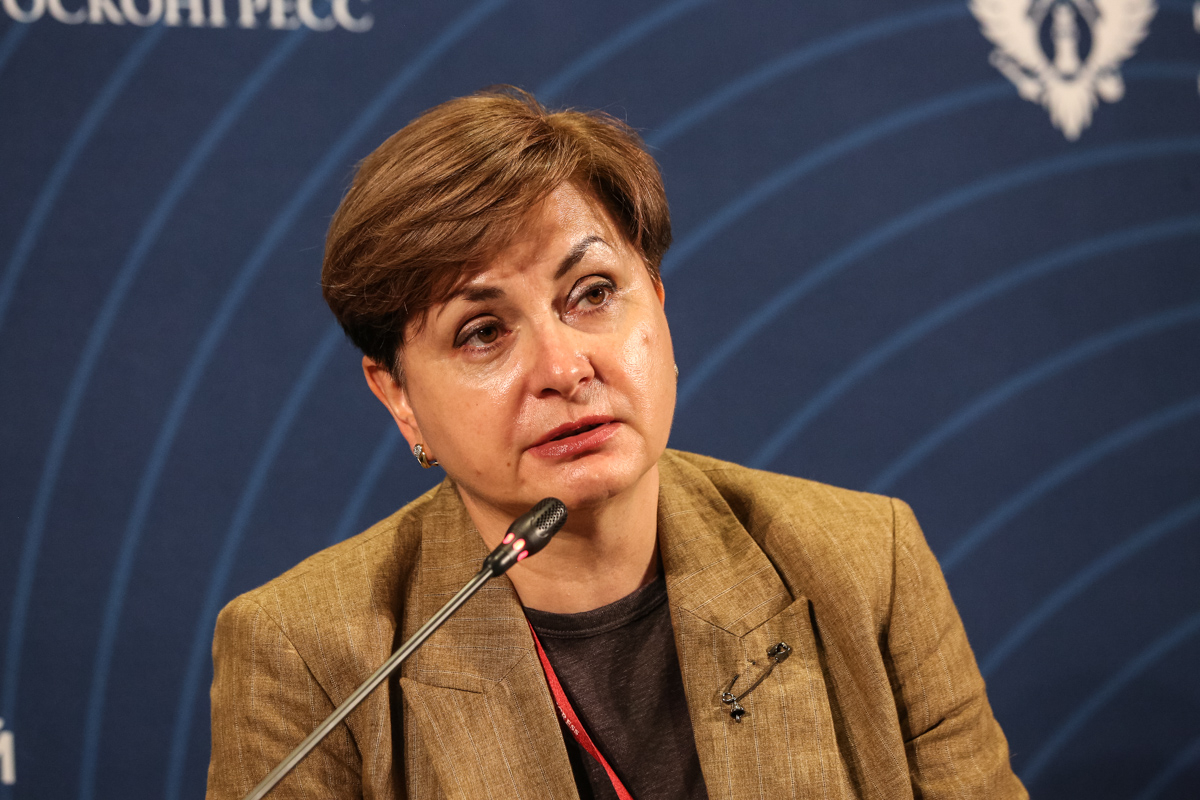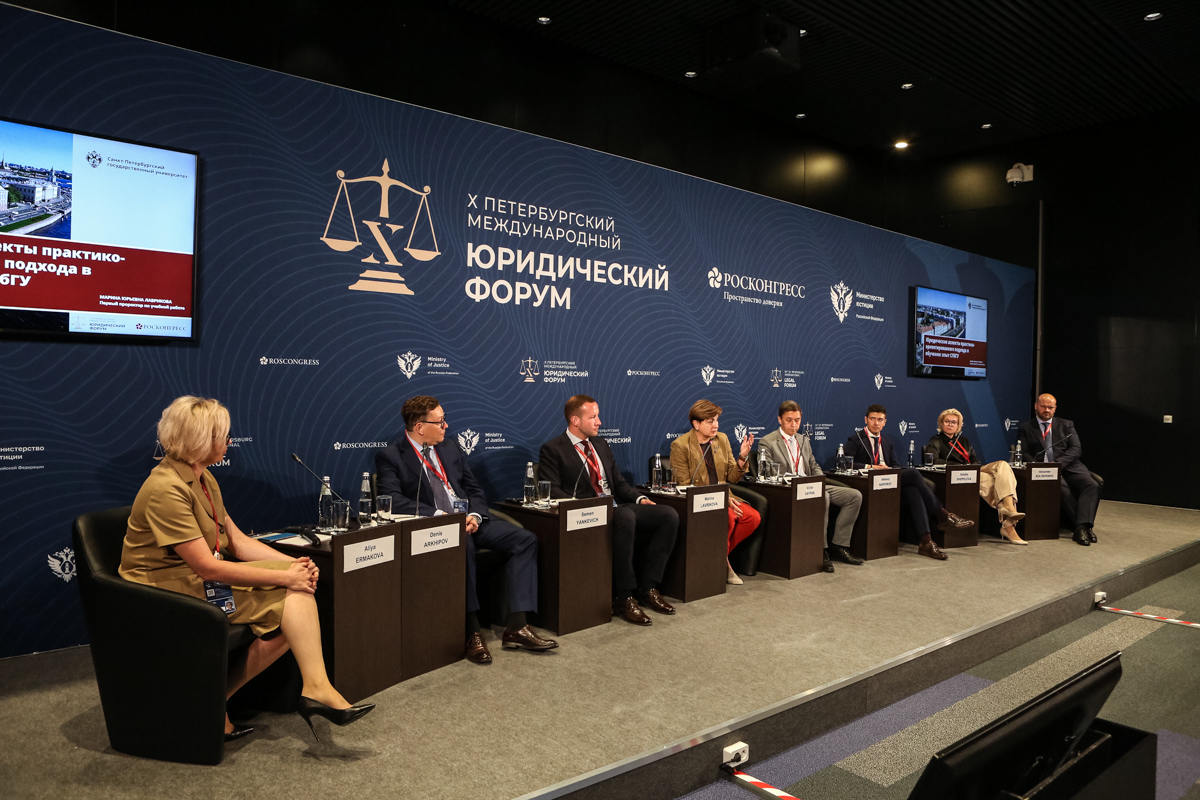The SPIEF discusses cooperation between businesses and universities to train qualified lawyers
The St Petersburg International Legal Forum has hosted a session on "Universities and Business: Legal Aspects of Effective Cooperation". Company lawyers and representatives of the legal offices of leading Russian universities exchanged views and discussed their interaction to ensure the training of high-level professionals.
Marina Lavrikova, Senior Vice-Rector for Academic Activities, spoke about the approach of St Petersburg University to training qualified lawyers. She said that despite the fact that state accreditation conducted by the Federal Service for Supervision in Education and Science (Rosobrnadzor) remains the main tool for assessing the quality of education, it is the professional community that makes it possible to identify gaps in academic programmes and improve them to meet the current requirements of the labour market.
The right to deliver education according to one’s own educational standards offers more freedom, but also imposes more responsibility. Since 2018, the standards have therefore included a separate section on interaction with employers to ensure the quality of education. However, the University began its work in this area much earlier.
Marina Lavrikova, Senior Vice-Rector for Academic Activities at St Petersburg University
For example, since 2016, business representatives have been involved in the development, implementation and evaluation of the University’s academic programmes. The University has set up the information system "Partner" to keep record of these activities, with some 9,500 accounts to date. The areas of interaction between St Petersburg University and employers are varied: they include membership on the councils of academic programmes, state examination committees and participation in the formation of programme portfolios. Work placements, internships and master classes for students, selection of topics for final and term papers and their review by business representatives, participation in start-up competitions and many other activities can also ensure practice-oriented training. St Petersburg University is consistently introducing new formats to involve employers in the educational process.
Marina Lavrikova rounded off her presentation by talking about the challenges of legal regulation of the interaction between the University and employers.
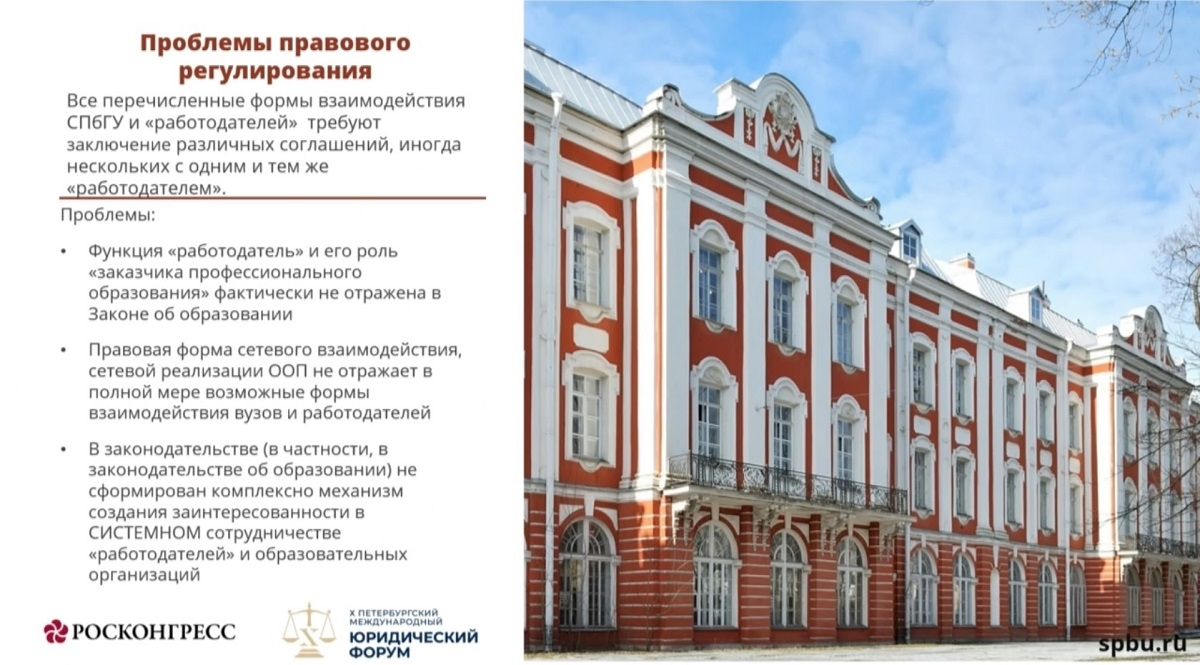
Denis Arkhipov, managing partner of Egorov Puginsky Afanasiev & Partners, presented the employers’ point of view. He indicated that the main requirements for law graduates are a fundamental knowledge of law, legal writing skills and the ability to understand company financial statements. The most important soft skill is a practical business-oriented approach: it is not the knowledge of law and court practice that is so important for clients, rather they need ready-made solutions. The speaker noted that, in practice, it often turns out that recent students have little interest in the law itself and believe that after graduation the educational process is over, while the legal profession involves lifelong learning. They also often look at the situation formally and offer the most obvious solutions rather than search for a more creative approach.
Indeed, it would be irrational to expect higher education institutions to teach the full range of practical skills that vary depending on whether a lawyer works in the advocacy, court or civil service sectors. However, in our view, it is important to ensure that future professionals develop an understanding that such competences may be required.
Denis Arkhipov, managing partner of Egorov Puginsky Afanasiev & Partners
’They might then, if they wish, pursue further education and immerse themselves in them in detail. Round tables, master classes and presentations by experts can provide a solution in this case,’ said Denis Arkhipov.
Victor Vaypan, Vice-Rector for Innovative Scientific and Technological Development of Moscow State University, spoke about the importance of providing legal support for university-business relations. He noted that for many decades, one of the problems of the Russian economy has been poor commercialisation of research. The inability to transfer fundamental knowledge into the production of everyday consumer products means that Russia, with all the research and development it has, is forced to buy electronics, equipment and medicines from developed countries. According to research conducted by the speaker, the contribution of new knowledge and solutions that scientific organisations and universities make to industrial production amounts to only about 40%. At the same time, companies do little to invest in innovations: only 3% of Russian companies finance such developments. The expert said that the expert community anticipates a significant decline in the technological level of the economy and this situation calls for drastic and rapid solutions.
’We need to ensure the technological sovereignty of the country. We can no longer rely on imported technology. It is no surprise that a presidential decree declared not a year, but a decade of science and technology,’ said Victor Vaypan. ’It would be best if this attempt to overcome the underlying problem of a weak link between industry and fundamental science concentrated in universities proved to be successful. Being lawyers, we understand that it is necessary to create an adequate legal basis for a breakthrough in the country’s scientific and technological development, and this is not just a trend, but a need’.


